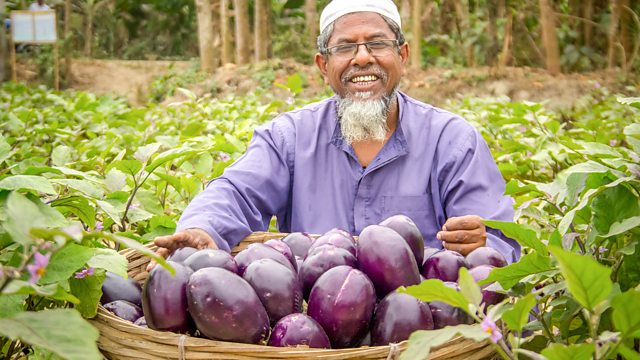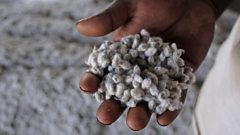Could we turn poisonous plants into edible crops?
Most plants we eat have been changed through millennia of domestication. But does science today have the ability to quickly make wild, even toxic plants edible?
There are over 400,000 species of plant on earth, they’re on every continent including Antarctica. But humans only regularly eat about 200 species globally, with the vast majority of our nutrition coming from just three species. Many of the fruits, leaves and tubers that other plants grow are packed full of toxins that are poisonous to us, and would make us very ill if we ate them. But could we take out the poisons and create new, edible crops? That’s what CrowdScience listener Marija wants to know.
Crowdscience dives into this topic, and uncovers the that many crops are poisonous, and why so few plants are eaten globally. Host Anand Jagatia finds that even the modern scientific processes of crop breeding are very slow. But science can now engineer plants at the genetic level by adding, silencing or removing specific genes. This ‘genetic modification’ is hugely controversial but can be highly effective.
Anand finds a man who has spent decades making cotton seeds edible by removing the poisons they naturally produce in their seeds. This GM crop could help fend-off starvation. But sometimes introducing poisons can be as important as removing them, as we find in the genetically modified ‘BT eggplants’ in Bangladesh. The new gene makes the vegetable toxic to a major insect pest, so they are much easier to grow.
But GM crops are not the perfect solution. They have problems of gene escape, can increase the use of environmentally damaging herbicide, and can be open to monopolisation. In some countries, particularly in Europe, GM crops are hugely controversial. Anand finds out whether these concerns stand up to science and looks at the counterpoint in developing countries in Africa, South Asia and elsewhere, where local farmers like Patience Koku in Nigeria have little time for some of the concerns around GM, particularly as they see poor harvests, poverty and starvation as the more pressing problems.
Contributors:
Professor Sandra Knapp, The Natural History Museum in London
Professor Julie King, Nottingham University
Professor Keerti Rathore, Texas A&M University
Dr Yousuf Akhond, Bangladesh Agricultural Research Institute
Professor Matthew Cobb, University of Manchester
Patience Koku, Nigerian Farmer and member of the Global Farmer’s Network
Alliance for Science
Produced by Rory Galloway and presented by Anand Jagatia for the 91�ȱ� World Service.
Image: Farmer with Fruits. Credit: Arif Hossain, Farming Future Bangladesh.
Last on
More episodes
Clip
-
![]()
Could cotton help feed the world?
Duration: 03:32
Broadcasts
- Fri 14 May 2021 19:32GMT91�ȱ� World Service
- Sat 15 May 2021 01:32GMT91�ȱ� World Service Europe and the Middle East
- Sun 16 May 2021 01:32GMT91�ȱ� World Service East and Southern Africa & West and Central Africa only
- Mon 17 May 2021 03:32GMT91�ȱ� World Service Australasia, South Asia & East Asia only
- Mon 17 May 2021 04:32GMT91�ȱ� World Service Americas and the Caribbean
- Mon 17 May 2021 08:32GMT91�ȱ� World Service
- Mon 17 May 2021 12:32GMT91�ȱ� World Service except East and Southern Africa, East Asia, South Asia & West and Central Africa
Podcast
-
![]()
CrowdScience
Answering your questions about life, Earth and the universe



